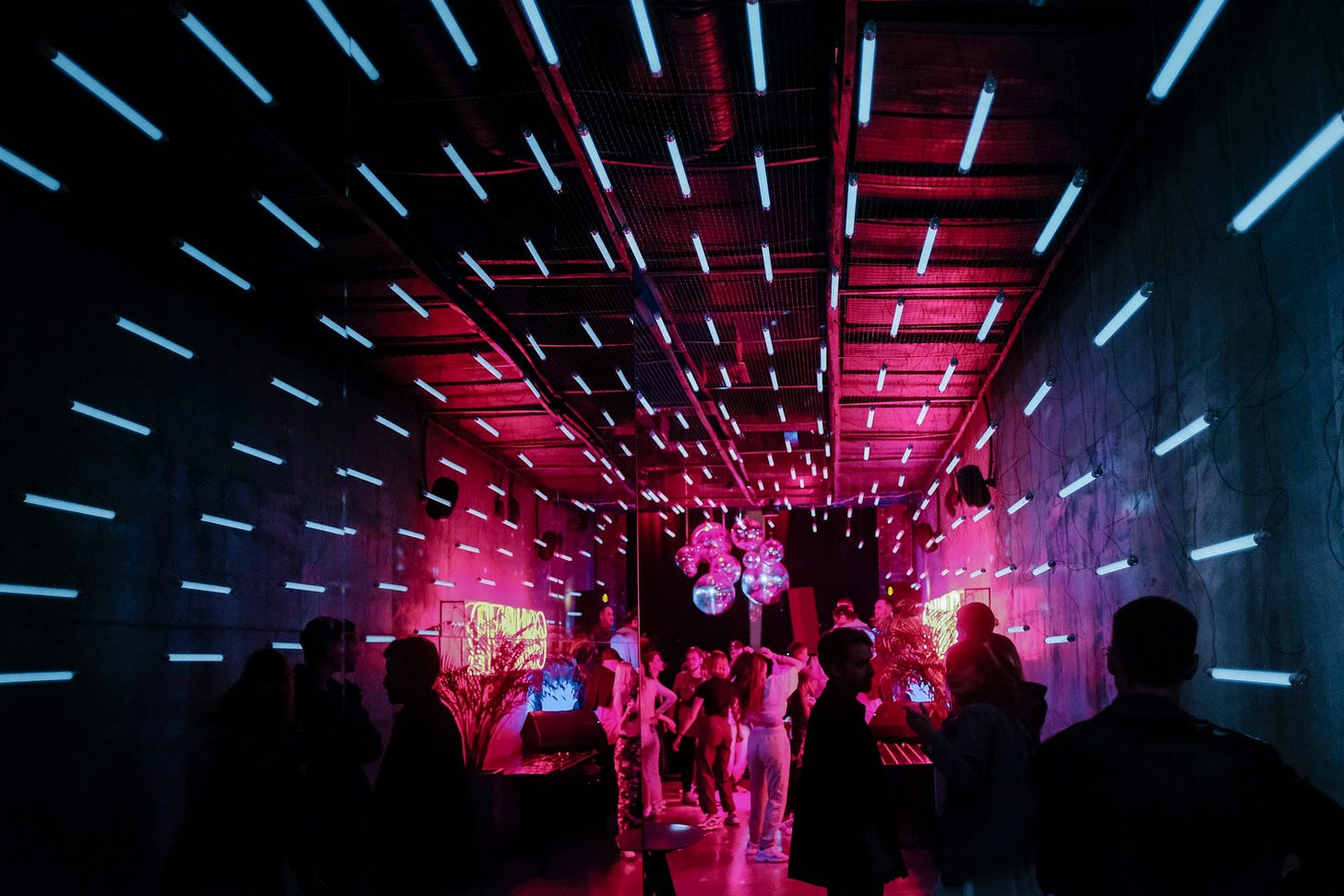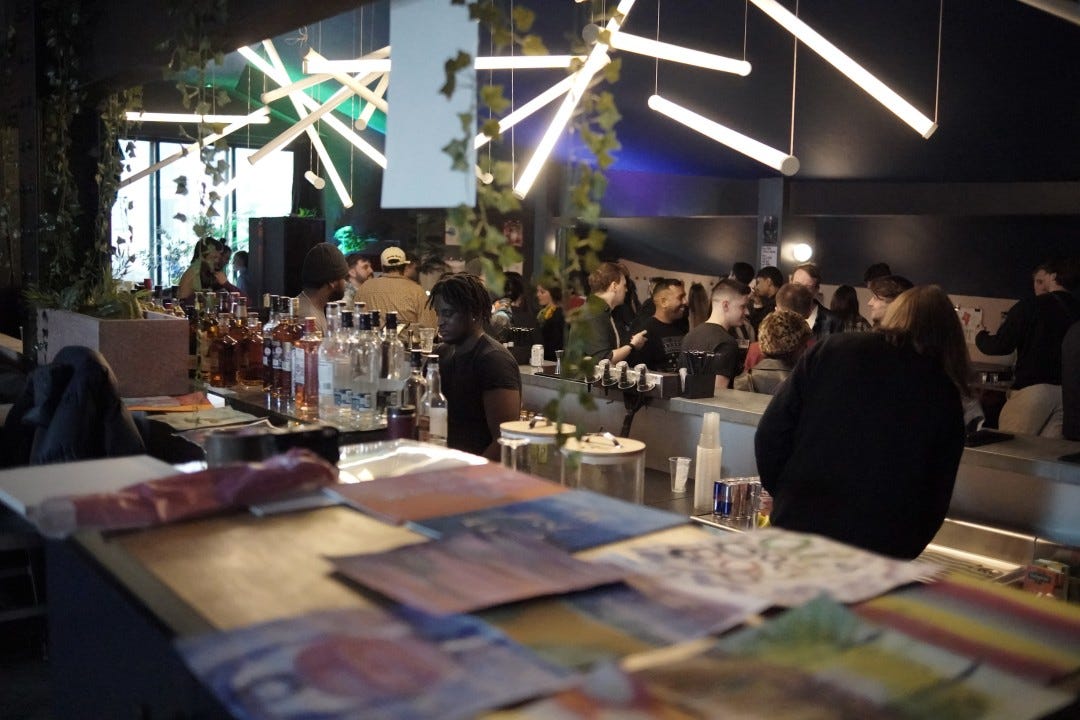When Atsushi Katsuki, CEO of Asahi, admitted that the brand had been “producing non-alcoholic beverages from the point of view of alcohol drinkers,” it marked a turning point for the entire industry. It’s high time drinks brands recognise and cater to non-drinkers on their own terms.
But this shift isn't just about health—it's about creating new spaces and experiences.
I have seen this play out all too well. In September 2020, I organised my first ticketed music event, a Sunday day-party and charity fundraiser in Tottenham’s since-bulldozed venue ‘The Cause’. I had been writing about music and grassroots culture for 10 years by that point, even my master’s dissertation was on the subject of electronic dance music and how it derives meaning from spaces where society behaves differently. To say that I’m passionate about the subject is an understatement. Yet, up until this point I had never felt the need to organise my own party, I was happy with the events available to me. This changed in 2020.
At a surface level, I simply wanted an event that adapted to covid-restrictions, rather than feeling like sad reflections of unrestricted events. At my party, I provided ticket-holders with painting materials and invited local painters to create ‘cover artworks’ for each of the DJ sets. At a deeper level, I was trying to respond to the serious mental health challenges that my friends and I were experiencing, to provide us with some new means of expressing ourselves, now that public dancing was essentially illegal. These legal restrictions ended in 2021, but I kept organising events – the need for different kinds of spaces was still there.
Like most festivals, pubs and club events, I rely on alcohol sales for my events to break even. We operate on a Sunday in a venue with plenty of natural light, so perhaps unsurprisingly we don’t tend to sell many drinks, sometimes we have to rely on the sale of artworks created on the day to avoid losing money. Interestingly, things aren’t so different over in London’s darkest, sweatiest Sunday party, the Berlin Techno-adjacent ‘Unfold’; a lot of their clientele are sober too.
My event has a partnership with the vitality shot-brand MOJU, who provide us with a crate-load of ginger shots to give away at the event. Aside from giving our visitors an energy boost (ginger is a natural stimulant), these shots have a powerful social function. All alcohol-drinkers know how welcoming it is to enter a party and be offered a drink, and there is something particularly wonderful about being able to do this without navigating the potential awkwardness of turning down alcohol. DJs often feel pressured to drink with the promotors who book them, and it’s been interesting that when I offer a DJ a choice of an alcoholic drink or a ginger shot, they tend to accept the latter (especially if they have just got in from a flight).
Of course, the shift away from alcohol isn’t just happening in Sunday day parties, it’s impossible to avoid the articles, reports and LinkedIn posts discussing how Gen Z drinks less than previous generations. Asahi’s Katsuki has also noted this, outlining his 2030 plans “to double the share of beverages with zero or low alcohol to 20% of our overall beverage sales.” This is an existential moment, not just for the producers of alcohol, but also the spaces where it is sold; recent figures estimated that five UK nightclubs are closing down every week.
Whether young people "want to be healthy” or not, they still still need places like nightclubs where they can make friends, meet romantic interests and express themselves.
This younger generation still need new social experiences, in spaces that are easy to navigate as Tinder and as colourful as TikTok.
To do this, the alcohol and the events industries need to collaborate to facilitate these new spaces and experiences. As Katsuki has noted, up until now, non-alcoholic beverages have been produced from the point of view of alcohol drinkers trying to cut down or drink less. This ignores the bigger picture.
Promoters need the big alcohol brands to be bold and take risks. As it’s enormously expensive for independent drinks brands to break into pubs and clubs, we need the wholesalers to step up and step in. This could be through collaborating with exciting, boundary-pushing soft drinks brands and helping them enter alcohol-based spaces. Alternatively, helping to build the kinds of events where these new products and the people who drink them can thrive. Invest in neuro-friendly venues where it's easy for all to see and hear the performers, with spaces other than a crowded dancefloor and a smoking area. Collaborate with creative promoters who lack the budget to bring their dreams to life and connect with other people who want to make a change.
I find myself thinking back to Heineken’s iconic 1975 campaign, which spearheaded lager promotion with the ground-breaking notion that the brand (and lager in general) ‘Refreshes the parts that other beers cannot reach.' We need new drinks that refresh the people that alcohol cannot reach, and support the venues which alcohol cannot sustain.




